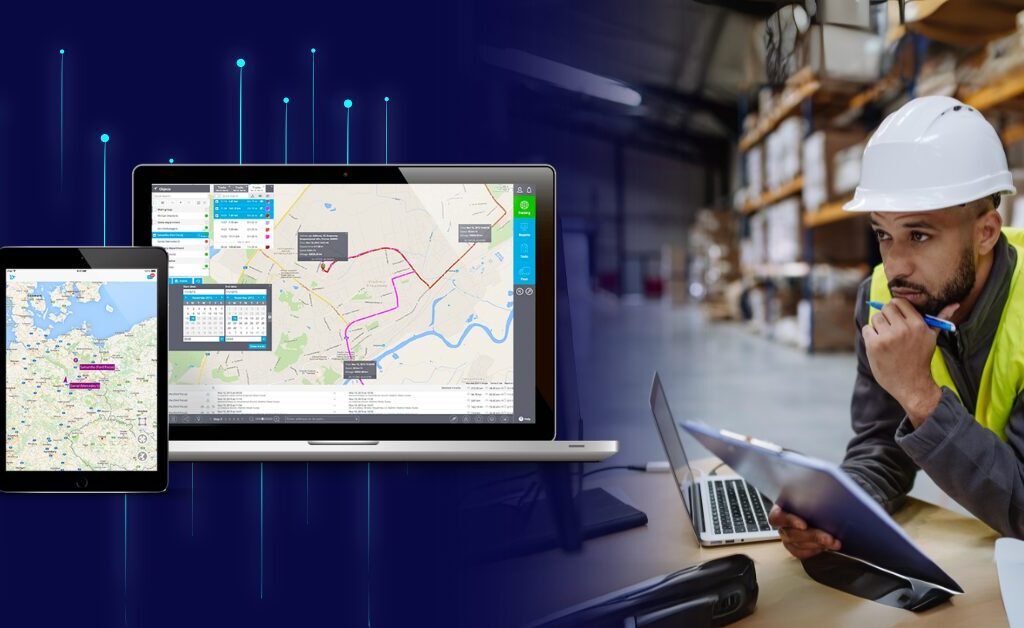Did you know that approximately 30% of online orders result in returns? In ecommerce, returns are as much a part of the customer journey as the initial purchase. How you manage these returns significantly impacts your business’s reputation, profitability, and long-term success. A well-executed return process can enhance customer loyalty, streamline operations, and even create additional revenue opportunities.
Although seamless return experiences are essential, many business owners often overlook this critical element. Returns management involves a complex reverse logistics process that requires as much attention to detail as the forward-facing delivery process.
Amazon has redefined return policies with its hassle-free return experience, setting a new industry standard by allowing customers to return items within 30 days for almost any reason. This commitment to customer satisfaction has fueled the company’s phenomenal growth. Today, we’ll explore reverse logistics and how to win your customers’ trust with hassle-free returns.
The Impact of Poor Return Management
Poor return management can affect customer satisfaction, operational efficiency, and brand reputation.
Customer Experience
- Eroded Trust: A frustrating return process can quickly erode customer trust. Delayed refunds, complex procedures, and high shipping costs turn satisfied customers into detractors.
- Damaged Loyalty: Negative return experiences make customers less likely to make future purchases, leading to a decline in customer loyalty and a loss of revenue.
Operational Challenges
- Logistical Issues: Inefficient return handling strains resources and increases operational costs, including managing inventory, processing refunds, and mitigating fraud.
- Increased Costs: Poor management can raise costs related to inventory holding, shipping, and labor for processing returns.
Brand Reputation
- Lost Credibility: Poor return management can damage your brand’s credibility, making it difficult to attract and retain customers.
- Negative Word-of-Mouth: Unhappy customers share their negative experiences, which can tarnish your reputation and deter potential buyers. Social media backlash can further amplify these issues.

Common Challenges in Managing Ecommerce Returns
Returns are inevitable in ecommerce, but managing them effectively can be challenging. Here are some common issues businesses face:
High Return Rates
- Sizing Issues: Clothing and footwear are particularly prone to returns due to sizing inaccuracies.
- Product Quality Concerns: Damaged or defective products drive returns and customer dissatisfaction.
- Unrealistic Expectations: Customers return products when they don’t meet their expectations.
Complexity of Reverse Logistics
- Multiple Touchpoints: Returns often involve multiple touchpoints, including customers, carriers, warehouses, and customer service, making the process time-consuming.
- Inventory Challenges: Managing returned inventory for restocking, inspection, or disposal can be difficult.
- Quality Control: Ensuring the quality of returned products, especially high-value or perishable items, is critical.
Cost Management
- Hidden Costs: Returns can involve hidden costs like shipping, labor, and restocking, which can significantly impact profitability.
- Lost Revenue: Products may need to be discounted or disposed of, resulting in lost revenue.
Fraud Prevention
- Wardrobing: Some customers wear items and return them for a refund.
- Counterfeit Returns: Customers might return counterfeit or used items.
Best Practices for Efficient Returns Management
With the right approach, returns can become a source of customer satisfaction and increased revenue.
1. Clear Return Policies
- Transparency: Ensure return policies are easily accessible and clearly outlined, with details on return windows, eligibility criteria, refund or exchange options, and any associated fees.
- Consistency: Apply the same policy across all channels and departments.
2. Automated Return Processes
- Return Management Software: Use software to automate tracking, processing, and refunds.
- Self-Service Portals: Offer customers an easy way to initiate and track orders online.
3. Streamlined Reverse Logistics
- Efficient Tracking: Use advanced tracking to monitor returned items.
- Sorting and Inspection: Establish efficient processes for evaluating and restocking returned items.
4. Customer Communication
- Proactive Updates: Keep customers informed with email or SMS updates.
- Personalized Service: Offer personalized support for customers requiring additional assistance.
5. Sustainability Considerations
- Eco-Friendly Packaging: Use recyclable or reusable packaging materials.
- Donation or Recycling Programs: Offer customers options to donate or recycle returned items.

The Role of Technology in Return Management
Technology plays a crucial role in optimizing return management. By leveraging the right tools and data, you can improve efficiency, reduce costs, and enhance the overall customer experience.
1. Return Management Software
- Automation: Automate routine tasks such as tracking and issuing refunds.
- Analytics: Use data to generate reports on return rates and identify frequently returned products.
2. Fulfillment System Integration
- Streamlined Processes: Integrate return data with fulfillment systems to improve efficiency.
4. Personalization in Returns
- Recommended Exchanges: Use data to suggest alternative products based on the return reason.
- Personalized Communication: Send targeted messages to customers based on their return history and preferences.
5. Data-Driven Insights
- Trend Analysis: Identify trends in return rates and reasons for returns to inform product improvements and inventory management.
- Customer Segmentation: Segment customers based on return behavior to tailor your return policies and strategies.
6. AI-Powered Insights
- Predictive Analysis: Use AI to forecast return rates and identify high-risk products.
- Proactive Measures: Implement preventive measures to reduce returns for high-risk products, such as improving product descriptions or offering better sizing guides.
7. Additional Technologies
- Augmented Reality (AR): Use AR to provide customers with a more accurate view of products, reducing the likelihood of returns due to sizing or appearance discrepancies.
- Chatbots: Implement chatbots to provide instant customer support and assistance with returns.
- Blockchain: Use blockchain technology to track the movement of returned items and prevent fraud.

Outsourcing to a 3PL Provider
Outsourcing returns to a third-party logistics (3PL) provider frees your resources, allowing you to focus on growth and customer satisfaction.
Why Outsource Returns?
- Reduced Operational Strain: Outsourcing alleviates the burden of handling returns internally.
- Improved Efficiency: Ecommerce fulfillment centers handle reverse logistics expertly, reducing processing time and costs.
Custom Solutions
- Automated Processing: Third party fulfillment service providers can automate much of the return process.
- Quality Control: Ecommerce fulfillment centers can conduct quality inspections on returned items to determine their condition and eligibility for resale or recycling.
- Seamless Customer Communication: Ecommerce fulfillment centers manage customer communication, providing timely updates on returns.

Key Considerations When Choosing a 3PL for Return Management
When selecting a 3PL solution provider, consider these factors:
Experience and Expertise
- Proven Track Record: Choose an ecommerce fulfillment center with a history of successful return management, particularly in your industry.
- Industry Knowledge: A provider with industry-specific expertise can offer tailored solutions and deeper insights.
Technology and Integration Capabilities
- Advanced Systems: Ensure the 3PL solution provider you are choosing uses up-to-date technology for return management.
- Seamless Integration: The ecommerce fulfillment service provider should integrate effortlessly with your ecommerce platform and inventory management systems.
- Data Security: Confirm that they employ robust data protection measures to secure sensitive customer information.
Multi-Channel Integration
- Omnichannel Support: Ensure the ecommerce fulfillment provider can manage returns from all sales channels, including online, in-store, and mobile.
- Unified Experience: The provider should offer a seamless return process across all platforms, maintaining a consistent customer experience.
Scalability and Flexibility
- Growth Management: The ecommerce fulfillment center must accommodate fluctuating return volumes as your business expands.
- Adaptability: They should easily adjust to changes in product lines or market expansions.
Customer Support
- Responsiveness: The ecommerce fulfillment center should provide timely support for both you and your customers.
- Professionalism: A skilled and professional customer service team is essential.
Sustainability Practices
- Eco-Friendly Initiatives: Evaluate the 3PL’s commitment to sustainability through recyclable packaging and efficient shipping routes.
- Environmental Impact: A provider focused on minimizing environmental impact can align with your sustainability goals.
Additional Considerations
- Pricing and Fees: Compare costs and fee structures between providers to find the best value.
- Location: Proximity to customers and your warehouses can impact delivery times and costs.
- Contract Terms: Review service level agreements (SLAs) and dispute resolution procedures before signing any contracts.
Final Thoughts
Efficient return management is essential for ecommerce success. By implementing streamlined processes, leveraging technology, and outsourcing to a third-party ecommerce fulfillment service provider, you can turn returns into a positive experience for both your business and customers. Keep a close eye on customer preferences, and be ready to adapt your strategy as needed. With the right approach, you can transform returns into a win for everyone.
About Ecom Logistics
Ecom Logistics is a trusted leader in ecommerce fulfillment and return management solutions in Canada. With extensive industry expertise, we deliver efficient, reliable, and cost-effective services tailored to businesses of all sizes.
Our services include:
- Order Fulfillment: From inventory management to seamless pick, pack, and ship operations, we ensure your orders are processed with precision and speed.
- Returns Management: Streamline your return processes, from receiving products to issuing refunds and exchanges, with our efficient solutions.
- Technology Integration: We use advanced technology to automate tasks, optimize operations, and offer real-time visibility into inventory and orders.
- Customer Support: Our dedicated team is ready to assist with any questions or concerns, ensuring exceptional service every step of the way.
Contact us today to discover how we can optimize your ecommerce operations and enhance your customer experience.




